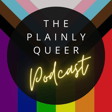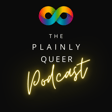
Queer History Part 1: The Hidden Figures of Ireland.
Did you know that Ireland was the first country in the world to legalise same-sex marriage by popular vote? How did that happen? In this episode, we talk about Queer Irish history and the hidden figures who made it possible.
In this episode, we will:
- Pay homage to some of the inspirational figures who fought for the rights and dignity of the Queer community, such as David Norris and the Sexual Liberation Movement.
- Discuss one of the key moments that led to the marriage referendum act in Ireland: the Noble Call speech by Rory O’Neill, also known as Panti Bliss, a drag queen and activist who spoke out against homophobia and discrimination.
- Explore what challenges and opportunities lie ahead for the Queer community in their quest for equality and justice.
- Look back at two Irish icons who lived authentically and courageously as themselves, known as the Ladies of Llangollen.
We hope you enjoy this episode, and we would love to hear your feedback and thoughts. Don’t forget to leave us a review and share this podcast with your friends. Thanks for listening!
If you found anything distressing in today's episode, please do reach out to supports. Below is a list of resources that may be of help to anyone listening:
Queer affirming counselling and psychotherapy services: https://www.insightmatters.ie/
LGBTQ+ community support in Ireland: https://lgbt.ie/
LGBTQ+ Youth Support in Ireland: https://www.belongto.org/
Transgender Equality Network Ireland: https://teni.ie/
The Samaritans: https://www.samaritans.org/ireland/samaritans-ireland/


